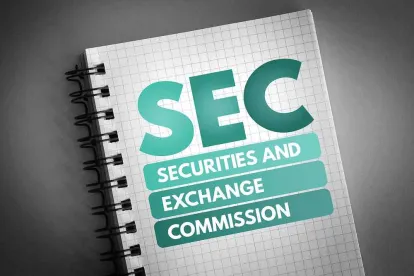On July 26, the U.S. Securities and Exchange Commission (SEC) issued a $37 million whistleblower award to an individual who voluntarily provided original information and further assistance which led to a successful enforcement action.
Through the SEC Whistleblower Program, qualified whistleblowers whose disclosures lead to successful enforcement actions are eligible to receive awards of 10-30% of the funds collected by the government in the action.
According to the SEC, the whistleblower first reported their concerns internally which prompted the company to conduct an internal investigation and then report the misconduct to the SEC. The SEC further notes that “without [the whistleblower’s] ongoing, extensive and timely assistance during the course of the investigation, including answering the staff’s questions and providing sworn testimony which the staff found to be ‘candid and credible,’ the staff would not have learned the full context and dimension of the Firm’s misconduct.”
According to the SEC, the whistleblower faced retaliation for their whistleblowing, “including receiving a negative performance review and a sharply lower bonus than the previous year, despite meeting the performance goals the Firm had set for [them].”
Research shows that whistleblowers who report internally face much higher rates of retaliation than those who report solely to government programs such as the SEC Whistleblower Program.
“Today’s whistleblower learned of misconduct and made the difficult decision to report their concerns. This individual, who was retaliated against for their whistleblowing activity, played a crucial role in the ultimate success of the enforcement proceeding,” said Creola Kelly, Chief of the SEC’s Office of the Whistleblower.
The SEC weighs a number of factors in determining the exact percentage to award a whistleblower. In this case, positive factors cited by the Commission include “the significance of information provided to the Commission,” “the assistance provided in the Covered Action” and “the law enforcement interest in deterring violations by granting awards.”
However, the SEC also noted a number of negative factors it weighed, including “culpability” and “unreasonable reporting delay.”
Since the it was established with the passage of the Dodd-Frank Act in 2010, the SEC Whistleblower Program has received more than 80,000 whistleblower tips, awarded more than $1.9 billion to whistleblowers, and has recovered more than $6.3 billion in total monetary sanctions, including more than $4 billion in disgorgement of ill-gotten gains and interest.
According to SEC Chair Gary Gensler, the whistleblower program “has greatly aided the Commission’s work to protect investors.”
Geoff Schweller also contributed to this article.




 />i
/>i

